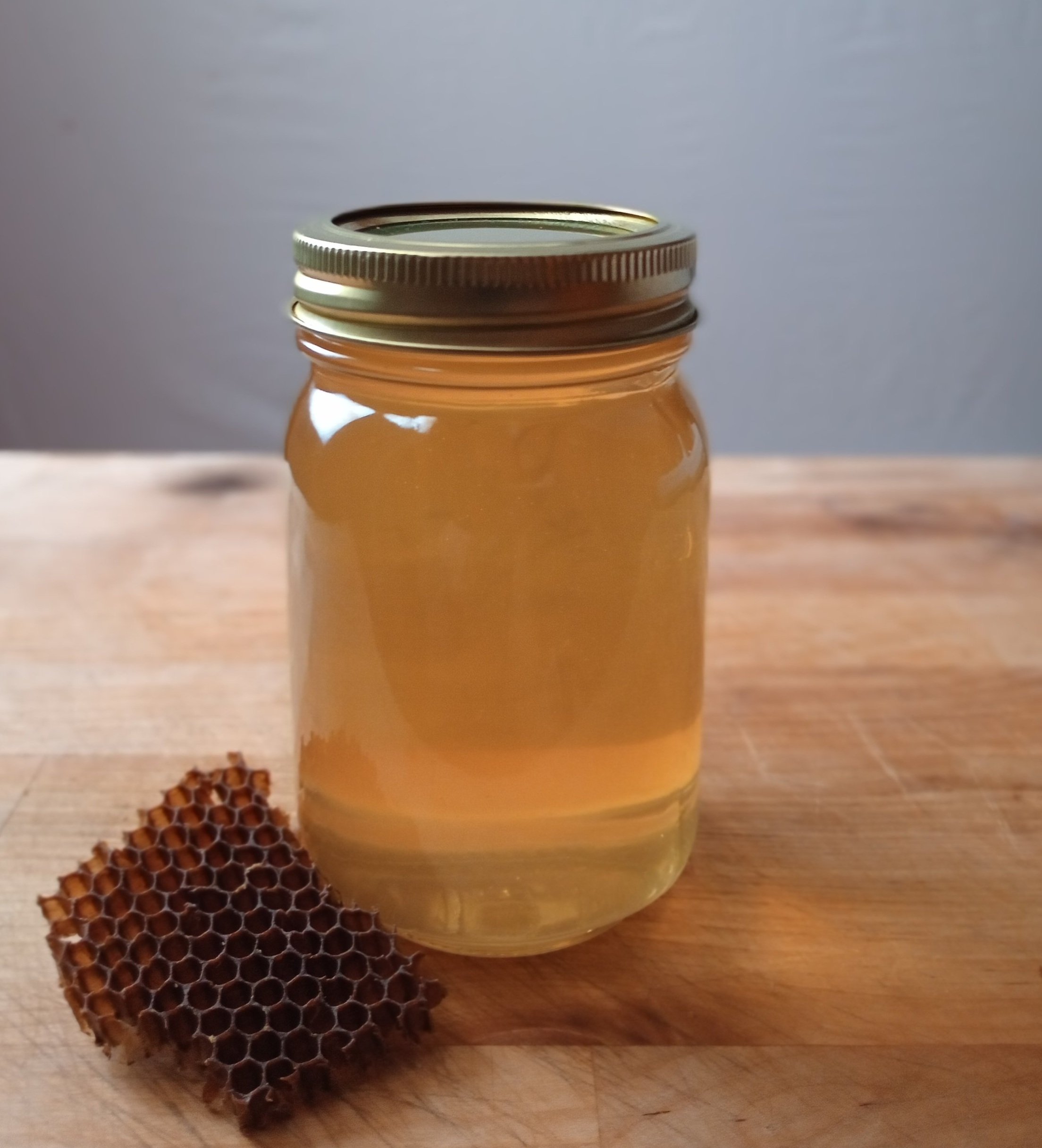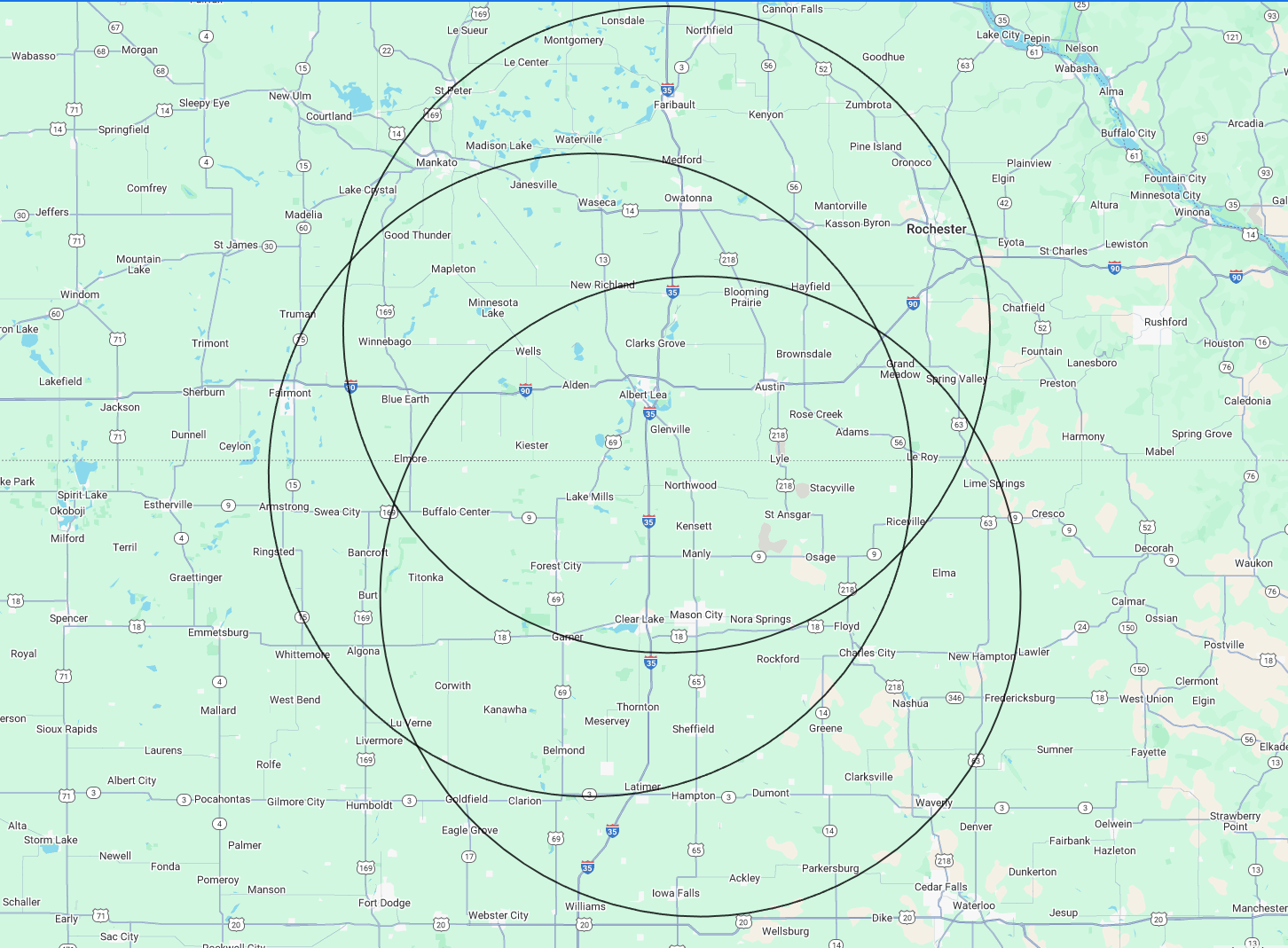What is raw honey, and why do you want it?
-
Raw honey, as defined by the USDA, is honey that has not been heated above 118°F and contains bee pollen and other beneficial ingredients. The USDA does not have specific regulations for raw honey, but it is generally understood that raw honey is honey "as it exists in the beehive" and is extracted from the honeycombs, strained to remove impurities like beeswax or other debris, and then bottled without further processing.
What’s the difference between our raw honey and raw honey from the store?
Most raw honey found in supermarkets are liquid and won’t crystalize easily, and while not having to decrystalize honey can be desirable, it usually means that the best of the benefits have been stripped away through filtration.
Much like the term “raw”, the USDA does not have a specific definition for “unfiltered”. The vast majority of honey is filtered, because no one wants bee parts and hive bits in their honey, but some companies filter out the pollen and other tiny particles that may speed up the crystallization process. The honey may also be heated during filtration, and while it may not reach the 118°F pasteurization temperatures, it can certainly get hot enough to destroy the beneficial micronutrients and probiotics.
Some honeys may be a mixture of different honeys with high and low sugar contents, to make a more balanced, stable blend. We do not mix our honeys
A 2011 investigation done by the FSN found up to 76% of U.S. grocery store honey may be adulterated, often with corn syrup, or rice syrup, or ultra-processed, having no pollen at all.
A 2021-2022 report showed that about 60%-70% of the honey consumed in the U.S. is imported, and about 10%-14% of that honey is adulterated, or cut, with another syrup.
Finally, most raw honey in supermarkets are not local to the area they are being sold in. This reduces the value of any benefits, by removing the local pollens.
-Raw honey benefits-
-
Never Spoils:
Raw honey’s natural preservatives, like low water content and high acidity, make it an inhospitable environment for bacteria and microorganisms. Archaeologists have found edible honey in ancient Egyptian tombs over 3,000 years old!
-
Allergy Relief:
Some studies have shown that local honey may help reduce seasonal allergies by exposing you to small amounts of local pollen, acting like a natural immunotherapy.
-
Antioxidant Boost:
Raw honey is packed with antioxidants like flavonoids and phenolic acids, which can protect your cells from damage and support heart health.
-
Cough Suppressant:
Studies suggest honey can be as effective as over-the-counter cough medicines, especially for kids, calming sore throats naturally.
-
Digestive Aid:
Local honey contains prebiotics that nourish good gut bacteria, potentially easing digestion and boosting immunity.
-
Wound Healing:
Raw honey has natural antibacterial properties, making it a traditional remedy for soothing burns and promoting skin recovery.
-
Sleep Aid:
A spoonful before bed can stimulate melatonin production indirectly by supporting tryptophan uptake, potentially helping you drift off more easily.
-
Superfood:
Throughout history, we see even the ancient Greeks and Romans use raw honey as both food and medicine, with figures like Hippocrates praising it for treating everything from wounds to fevers.
Our Honey is raw, and will often be crystalized when you get it!
The fact that out honey crystalizes is proof that its raw.
Not all honeys are made equal, crystallization speed depends on the amount of things in the honey. Pollen count, sugar content, water percentage and storage temperatures bellow 70F will all affect how fast the honey crystalizes.
You can de-crystalize raw honey it by putting it in a pot on your stove and keeping the temperature between 90-100f, but we do not recommend using a microwave, as it will damage or destroy the things that provide its raw benefits.
-Please note-
While benificial, no honey should ever be given to children under the age of 12 months, as USDA testing has found around 25% of all honeys, both processed and raw, contain Clostridium botulinum spores which can cause a severe illness to children under 12 months of age. Babies have immature immune and digestive systems, and they can not always defend agaisnt this disease.




